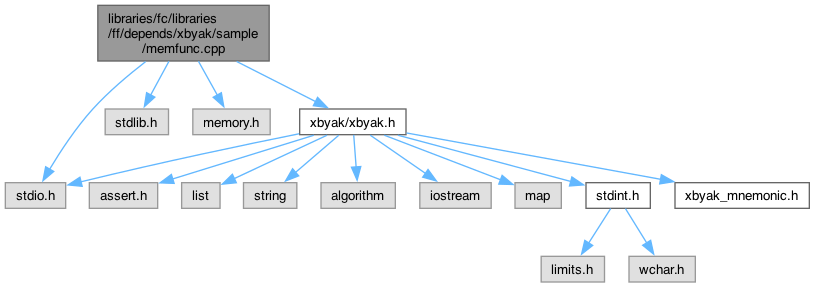Loading...
Searching...
No Matches
Include dependency graph for memfunc.cpp:

Go to the source code of this file.
Classes | |
| struct | A |
| struct | Code |
Macros | |
| #define | XBYAK_NO_OP_NAMES |
Functions | |
| int | main () |
Macro Definition Documentation
◆ XBYAK_NO_OP_NAMES
| #define XBYAK_NO_OP_NAMES |
Definition at line 4 of file memfunc.cpp.
Function Documentation
◆ main()
| int main | ( | void | ) |
Definition at line 79 of file memfunc.cpp.
80{
81#ifdef XBYAK64
83#else
85#endif
86#ifdef _WIN32
87 puts(" win");
88#else
89 puts(" linux");
90#endif
91 try {
92 Code code;
96 for (int i = 0; i < 10; i++) {
100 t1 = rand(); t2 = rand(); t3 = rand();
101 t4 = rand(); t5 = rand();
102 x = a.func(t1, t2, t3, t4, t5);
105 }
106 } catch (std::exception& e) {
108 return 1;
109 }
110}
Definition Tricky.tests.cpp:102
LOGGING_API void printf(Category category, const char *format,...)
Definition Logging.cpp:30
Definition bench.cpp:18
memcpy((char *) pInfo->slotDescription, s, l)
Here is the call graph for this function:
